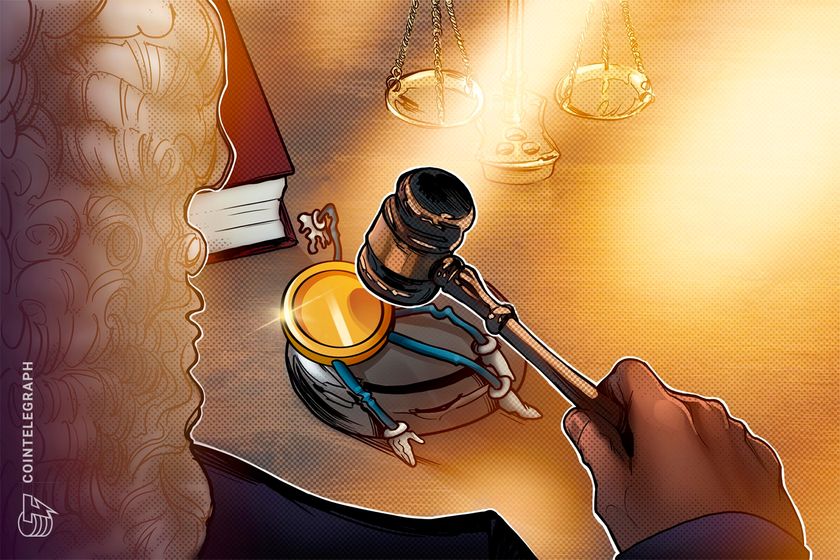
‘Contrary to popular belief,’ regulation isn’t slowing tokenization — Prometheum CEO
The market for tokenized real-world assets (RWAs) is growing by the day, but contrary to belief, the biggest hurdle to broader adoption isn’t regulation, but a lack of dedicated secondary markets for buying and selling tokenized securities, according to Prometheum founder and co-CEO Aaron Kaplan. In an interview with Cointelegraph, Kaplan drew attention to ARK Invest CEO Cathie Wood’s recent appearance at the Digital Asset Summit in New York, where she said that a lack of regulatory clarity is preventing her company from tokenizing its funds.“Contrary to popular belief, however, the hurdle isn’t ambiguous regulation,” said Kaplan, who noted that the US Securities and Exchange Commission’s (SEC) special purpose broker-dealer framework and Alternative Trading System (ATS) licensing “already provide a regulated pathway for issuing blockchain-native funds that offer efficiency advantages over traditional issuances.”“The real bottleneck lies in the limited market infrastructure for delivering tokenized securities trading to a broad investor base,” he said.Excluding stablecoins, the value of tokenized RWAs has increased by nearly 8% to $19.5 billion over the past 30 days, according to industry data. Private credit and US Treasury debt remain the two largest use cases. The value of tokenized RWAs has grown rapidly over the past year. Source: RWA.xyz“These assets currently sit on a handful of blockchains, but there is still no fully public secondary market where institutional and retail investors can buy, sell, and trade them, as they do with traditional securities on Nasdaq or through a brokerage account like Fidelity,” said Kaplan, who identified two general approaches for building out these platforms. The first is building tokenized securities markets using decentralized finance (DeFi) frameworks, much like what Ondo Finance, Ethena Labs and Securitize are doing.Related: Ethena Labs, Securitize launch blockchain for DeFi and tokenized assetsThe second approach involves integrating tokenization protocols into existing brokerage platforms that operate under SEC-registered entities and are subject to federal securities laws. “Legacy crypto and fintech platforms are already accustomed to facilitating cryptocurrency trading, so you would expect them to seek to broaden their offerings to include tokenized securities,” said Kaplan.While many in the latter camp do not operate digitally, they “won’t cede market share without a fight,” said Kaplan. “Many are already investing in their own tokenization initiatives, or partnering with fintech and crypto firms, to remain competitive.”“What’s at stake is the next wave of users onboarding into the digital asset space […] The question is then, will the brokerage industry enter the digital asset space, or will crypto platforms build the next gen markets for investors to buy and sell digital securities?” As a digital asset trading and custody firm, Prometheum is attempting to bridge the infrastructure gap by building a full-service digital asset securities marketplace. The company claims that securities traded on Prometheum have reduced fees, faster settlement times and increased efficiency.Related: CME Group taps Google Cloud for pilot asset tokenization programInvestors want ‘digital native’ versions of assets they’ve always knownPerhaps the biggest demand driver for tokenized assets among traditional investors is that they want to access “digital native versions of all assets, in addition to crypto tokens, through a single ecosystem they are comfortably using […] to meet a range of financial goals,” said Kaplan.One area where tokenization appears to be gaining traction is in real estate. As Cointelegraph recently reported, luxury and commercial properties are being tokenized all over North America and secondary markets are being established to enable the trading of tokenized shares. A 2024 report by Boston Consulting Group (BCG) called tokenization a “game-changing blockchain use case in financial services” due to its scalability and near-instant transactions. According to BCG managing director and senior partner Sean Park, tokenization could boost investors’ annual returns by roughly $100 billion while increasing the revenue streams of financial institutions. Tokenized RWAs as an investable asset class reached an “inflection point” in 2023. Source: Boston Consulting GroupThe potential of tokenization has even been flagged by the World Economic Forum in a recent article published by Digital Asset co-founder and CEO Yuvan Rooz. In the article, Rooz showed that roughly 10% of the $230 trillion global securities market is eligible for use as collateral. “Tokenization, which improves collateral mobility and capital efficiency, could unlock this untapped capital and optimize intraday liquidity so that funds can be accessed and moved within the same trading day to meet payment and settlement obligations,” said Rooz.Magazine: Block by block: Blockchain technology is transforming the real estate market
Post from: Cointelegraph.com News
Tags: